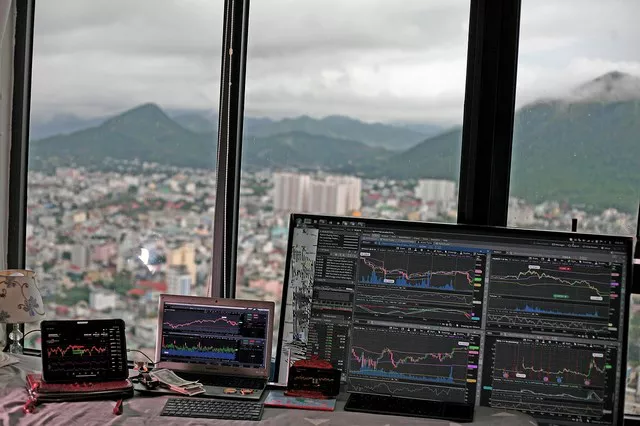Stock index futures are complex financial instruments that play a crucial role in the global financial markets. These derivatives are often used by investors, traders, and institutions to manage risk, speculate on market movements, and enhance portfolio performance. Understanding how stock index futures work is essential for anyone involved in the financial markets, as they are an integral part of modern investment strategies.
What Are Stock Index Futures?
Stock index futures are standardized financial contracts that allow investors to speculate on the future direction of a particular stock market index. These contracts derive their value from the performance of a designated underlying stock index, such as the S&P 500, Dow Jones Industrial Average, or Nasdaq 100. Stock index futures provide a way to gain exposure to a broad market index without owning the underlying assets.
The Basics of Stock Index Futures Trading
Trading stock index futures involves making a financial commitment to buy or sell an index at a predetermined price on a specified future date. These contracts are standardized with respect to contract size, expiration date, and the index they are based on. To initiate a position in stock index futures, traders must open a futures contract by paying an initial margin, which is a fraction of the contract’s total value.
Leverage and Margin in Stock Index Futures
One of the defining features of stock index futures is the use of leverage. Leverage allows traders to control a larger position size with a relatively small amount of capital. However, this amplifies both potential gains and losses. Margin requirements are in place to ensure that traders have sufficient funds to cover their obligations. Understanding how leverage and margin work is essential to managing risk in stock index futures trading.
Hedging with Stock Index Futures
Stock index futures play a significant role in risk management. Investors can use these derivatives to hedge against adverse price movements in their stock portfolios. For example, if an investor holds a diversified portfolio of stocks and anticipates a market downturn, they can sell stock index futures to offset potential losses in their portfolio. This hedging strategy helps protect the value of their holdings.
Speculating with Stock Index Futures
Traders and investors often use stock index futures for speculative purposes. By taking positions in stock index futures contracts, they can profit from market movements without directly buying or selling individual stocks. This speculative approach allows for potential profit in both rising and falling markets, making stock index futures a versatile tool for traders.
The Role of Arbitrage
Arbitrage is a trading strategy that seeks to profit from price discrepancies between the futures and the underlying index. Stock index futures provide arbitrage opportunities when the futures price deviates from the fair value of the underlying index. Arbitrageurs can buy or sell futures contracts and simultaneously buy or sell the underlying stocks to take advantage of these pricing differences.
Contract Specifications and Expiration
To effectively trade stock index futures, one must understand the contract specifications, which include details like contract size, tick size, and expiration date. Each contract represents a specific dollar value of the underlying index. The expiration date is when the futures contract matures, and traders must either close their positions or roll them over to a future contract.
Settlement of Stock Index Futures
Settlement of stock index futures occurs in two primary ways: cash settlement and physical delivery. Most stock index futures are cash-settled, meaning that the contract’s profit or loss is settled in cash at expiration, based on the difference between the contract’s settlement price and the index’s value. Physical delivery is less common and involves the actual transfer of the underlying assets, such as stocks, at expiration.
Risks Associated with Stock Index Futures
Like any financial instrument, stock index futures carry inherent risks. The leverage factor can magnify losses, and it’s possible to lose more than the initial margin deposited. Traders must also be aware of market risk, interest rate risk, and liquidity risk. It is essential to have a risk management strategy in place when trading these derivatives.
Trading Strategies with Stock Index Futures
Various trading strategies can be employed with stock index futures, depending on your financial goals and risk tolerance. Some popular strategies include day trading, trend following, and pairs trading. Investors can choose strategies that align with their market outlook and time horizon.
Regulation and Oversight
Stock index futures are subject to regulation by financial authorities to maintain market integrity and protect participants. In the United States, for instance, the Commodity Futures Trading Commission (CFTC) oversees futures markets, while exchanges like the Chicago Mercantile Exchange (CME) provide the infrastructure for trading these contracts.
Tax Implications of Stock Index Futures
Tax treatment of gains and losses in stock index futures trading varies by jurisdiction. It’s essential to understand the tax implications in your region, as they can significantly impact your net returns. In some cases, gains from futures trading may be taxed at a different rate than other forms of investment income.
Conclusion
Stock index futures are sophisticated financial instruments that play a vital role in global financial markets. They offer investors and traders a means to speculate on market movements, hedge against risks, and enhance portfolio performance. Understanding how stock index futures work, including the basics of trading, leverage and margin, hedging, speculating, arbitrage opportunities, contract specifications, settlement methods, risks, and trading strategies, is crucial for those looking to participate in the world of futures trading. By comprehending the mechanics and nuances of stock index futures, individuals can make informed investment decisions and manage risk effectively in today’s dynamic financial landscape.


